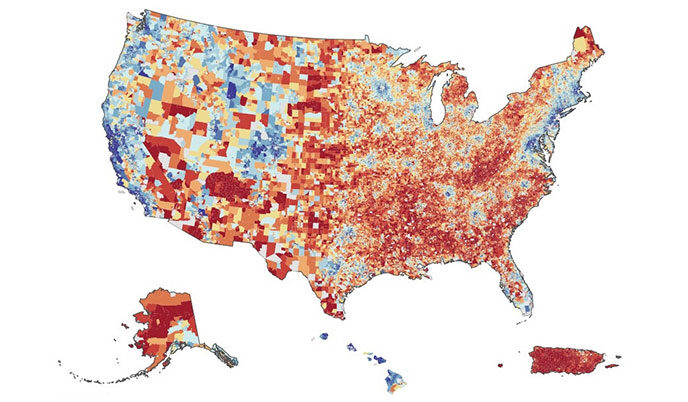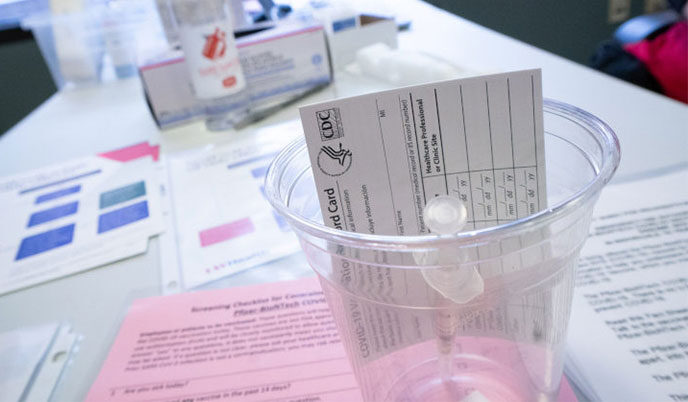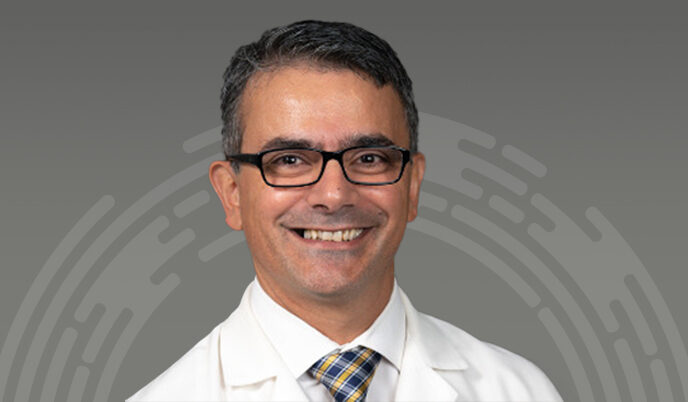
Inflation Reduction Act’s cap on insulin out-of-pocket costs boosts prescription fills
The Inflation Reduction Act $35 cap on out-of-pocket costs for insulin led to increases in the total number of filled insulin prescriptions for Medicare beneficiaries, according to a new study by researchers at the University of Wisconsin School of Medicine and Public Health and the University of Southern California Schaeffer Center for Health Policy & Economics.

Federal agency uses UW–Madison Neighborhood Atlas research to shape national health policy
A data tool developed by UW–Madison researchers showing health-relevant metrics for every neighborhood in the United States is guiding a national model to help Medicare beneficiaries from under-resourced communities access health care more effectively.

Affordable Care Act slashed uninsured rate among people with diabetes
The Affordable Care Act (ACA) provided health insurance for an estimated 1.9 million people with diabetes, according to a newly published study.

Dr. Ann Sheehy named a Robert Wood Johnson Foundation Health Policy Fellow
In recognition of her expertise as a physician and work addressing health equity issues, Ann Sheehy, MD, MS, associate professor of medicine and chief of the Division of Hospital Medicine in the Department of Medicine, was named a Robert Wood Johnson Foundation Health Policy Fellow by The National Academy of Medicine for the class of 2021-22.

Dean Robert N. Golden: Proposed state legislation would endanger OB/GYN residency accreditation and restrict women’s health care
Dean Robert N. Golden, MD, and Department of Obstetrics and Gynecology Chair Laurel Rice, MD, testified on May 26, 2021 during a public hearing of the Wisconsin State Senate Committee on Human Services, Children and Families. One of the bills discussed during the hearing was Senate Bill 260, which the University of Wisconsin School of Medicine and Public Health (UWSMPH) and UW Health opposes. A copy of Dean Golden’s testimony is below.

UW researchers develop tool to equitably distribute limited vaccines
The demand for COVID-19 vaccines continues to outpace supply, forcing public health officials to decide who should be first in line for a shot, even among those in the same pool of eligible vaccine recipients.

Requiring basic level of health care coverage is important for healthy people and communities
On Nov. 10, the United States Supreme Court is considering oral arguments in two cases related to the requirement that all Americans maintain health insurance coverage. The health impact of this straightforward governmental mandate is broad-reaching and should be maintained in the interest of protecting the health of Americans, advises Robert N. Golden, MD, Dean, University of Wisconsin School of Medicine and Public Health and Vice Chancellor for Medical Affairs.

UW study: Coverage for people with pre-existing conditions improved under the Affordable Care Act
Insurance coverage for people with pre-existing conditions increased during the first five years of Affordable Care Act implementation, a recent UW–Madison study revealed.

UW Health, School of Medicine and Public Health remove race from kidney function estimation formula
As part of their efforts to address systemic racism in medicine, UW Health and University of Wisconsin School of Medicine and Public Health are calling for an approach to assess kidney function devoid of race.

Access to Medicare increases cancer detection, reduces cancer mortality rate
Access to Medicare significantly impacts detection of certain cancers and life expectancy following cancer diagnosis, according to a new study from the UW School of Medicine and Public Health that was recently published online in the Journal of Policy Analysis and Management.

Michael Abernethy named to Federal Department of Transportation committee

Study: Wisconsin rule limiting full-contact practice in high school football cuts concussion rate by more than half
The rate of sport-related concussions during high school football practice in Wisconsin decreased by 57 percent following a rule change limiting the amount and duration of full-contact activities during practice, according to a new study by researchers at the University of Wisconsin School of Medicine and Public Health.